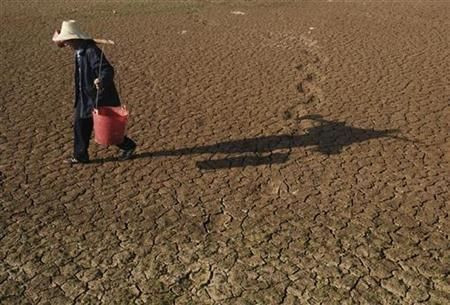Food security is in danger, says Climate Council reports
Rise in temperatures and low rainfall is about to affect Australia's productivity

Climate change is the primary cause affecting Australia's food security, and is set to drive up the prices of several food items. The Climate Council’s report on food, climate change and farming, “Feeding a hungry nation”, reveals that the agriculture industry has suffered and will suffer due to Australia’s worsening climate change.
The Climate Council’s report mentions that about 50 per cent of Australia’s agriculture sector is irrigated, but the availability of rainfall is about to decline. Low rainfall as well as a rise in temperatures have already affected areas of Southern Australia and resulted in poor crop yields.
If the climate remains the same, the results will be worse. The intensity of extreme weather events such as bushfires, droughts and cyclones is leading to decreased productivity across the agricultural sector. This also includes the livestock and dairy industries.
Reduced agricultural production is a big issue for Australia as the gross value of all agricultural commodities produced was roughly $50 billion for the calendar year ending June 30, 2014. The fishing, forestry and the agriculture sector employed 2.8 per cent of all employed Australians in August 2014 and represented 2.4 per cent of real gross value added to Australia’s economy in 2013-14, revealed data from Austrade.
Farming association Grain Growers Australia said farmers were concerned about climate change and already dealing with challenges like drought as well as seasonally variability, a Future Directions report said.
Data from the Grains Research and Development Corporation, or GRDC, also revealed that farmers in Australia have become more efficient with their water use. “Between 1982 and 2012 more than half of Australia’s wheat-growing regions have improved their WUE [water use efficiency] by at least 50 per cent,” the report noted.
Farmers are already dealing with the challenges of climate change even if they might not necessarily know that the problems they face are due to climate change. Those that recognise climate change are taking steps to protect their farms from the effects, said Joshua Gilbert, chair of Young Farmers, a subgroup of the NSW Farmers, who also works on the family cattle stud in Nabiac NSW.
Contact the writer at feedback@ibtimes.com.au, or let us know what you think below.




















